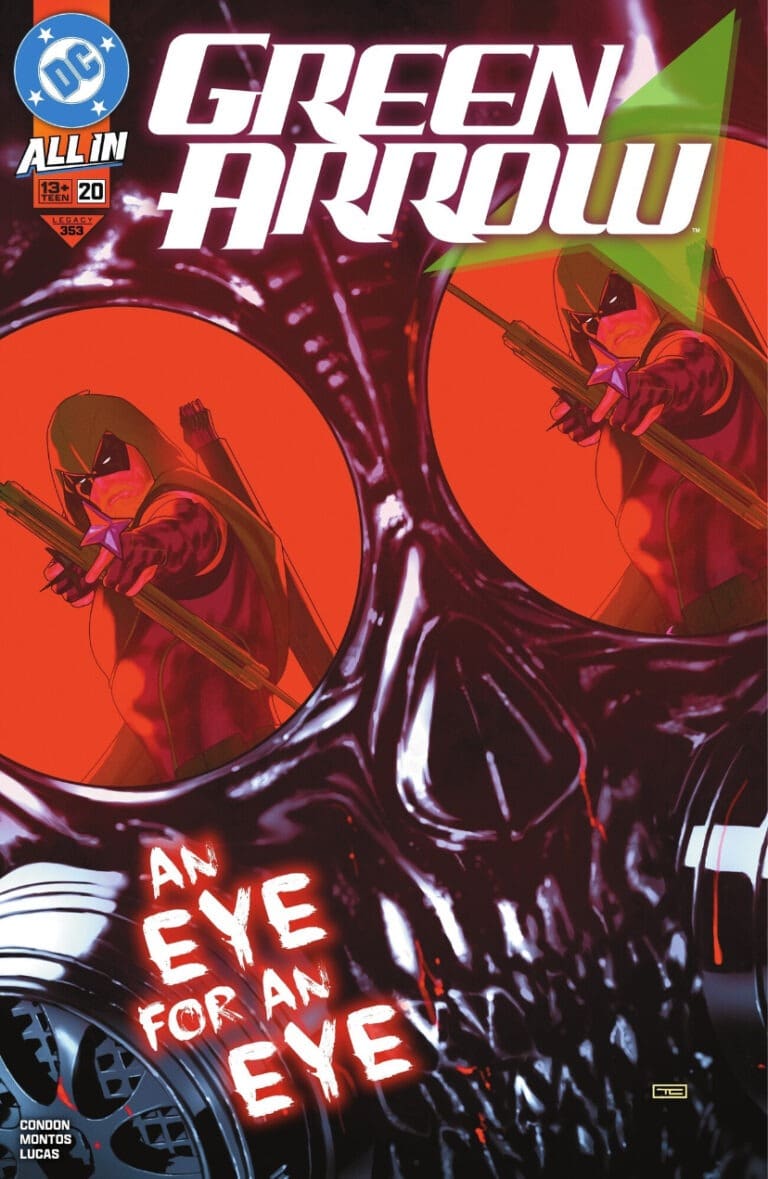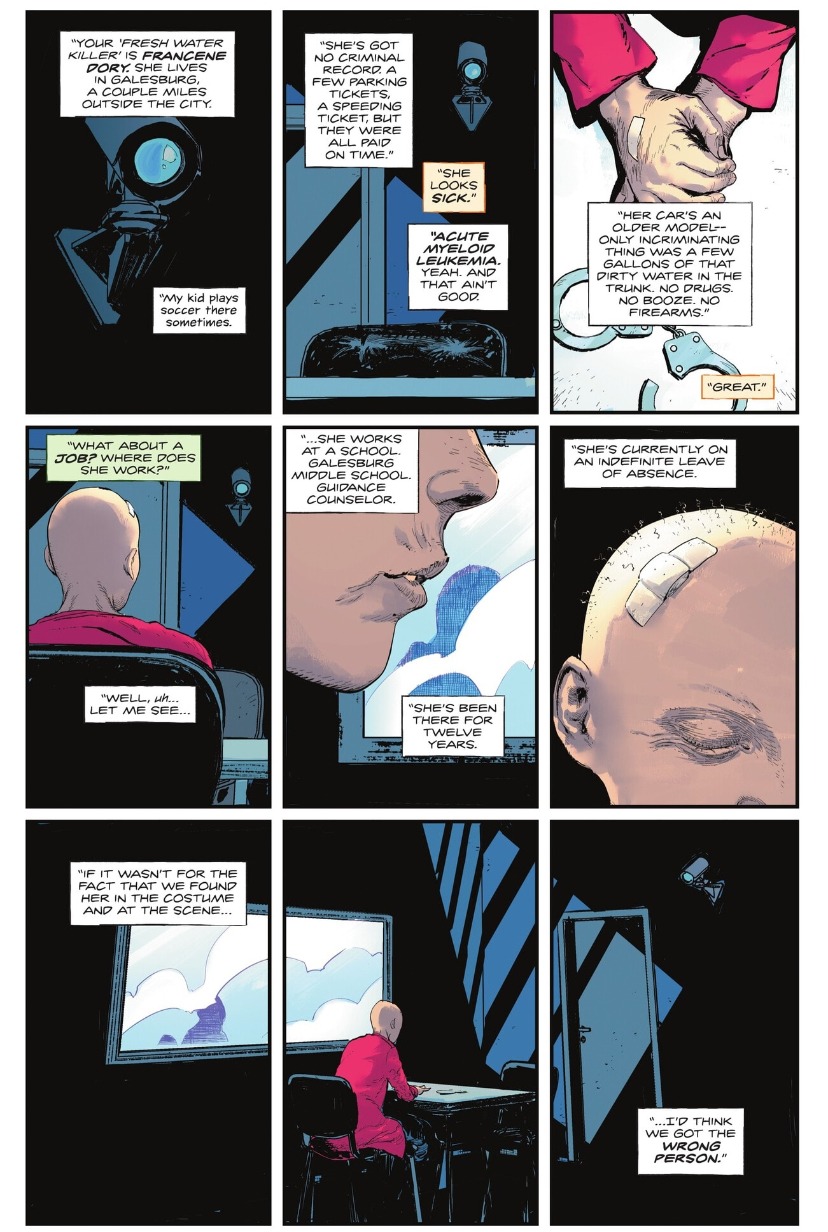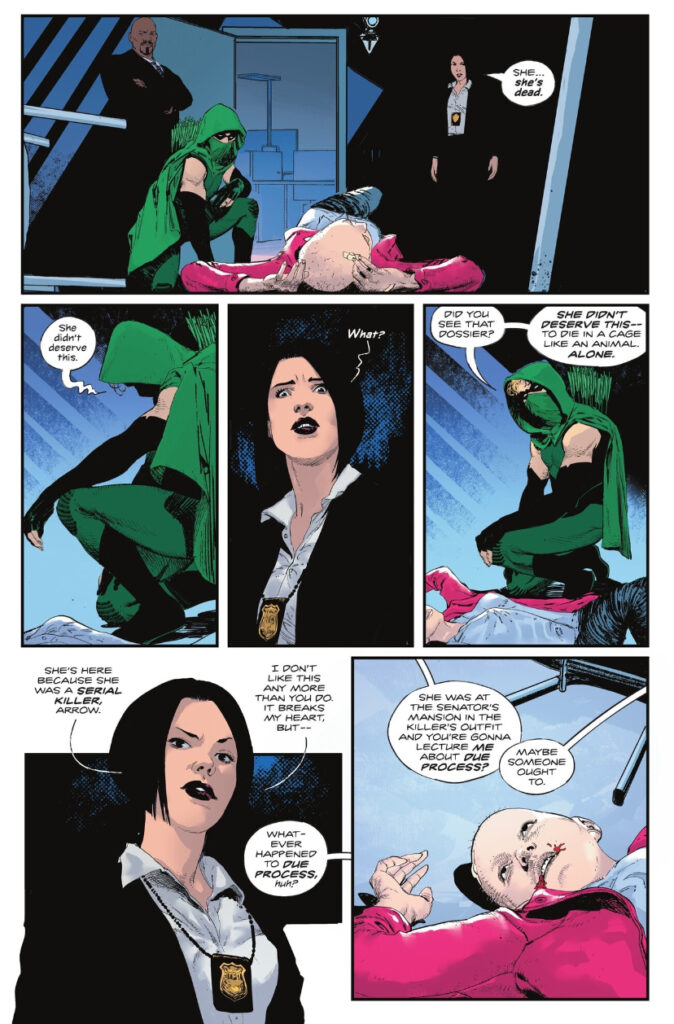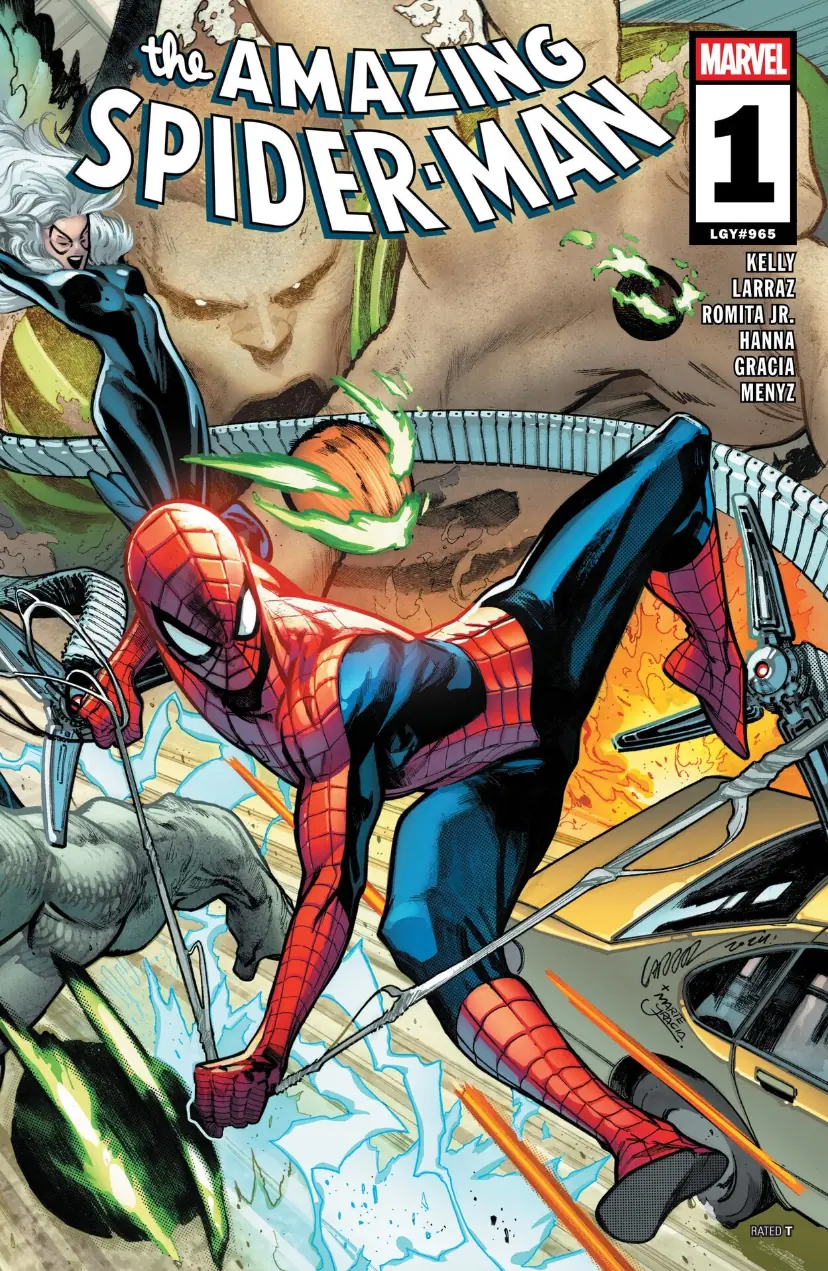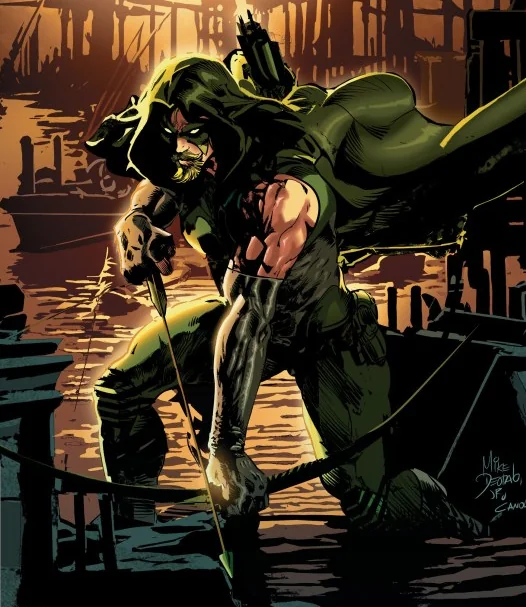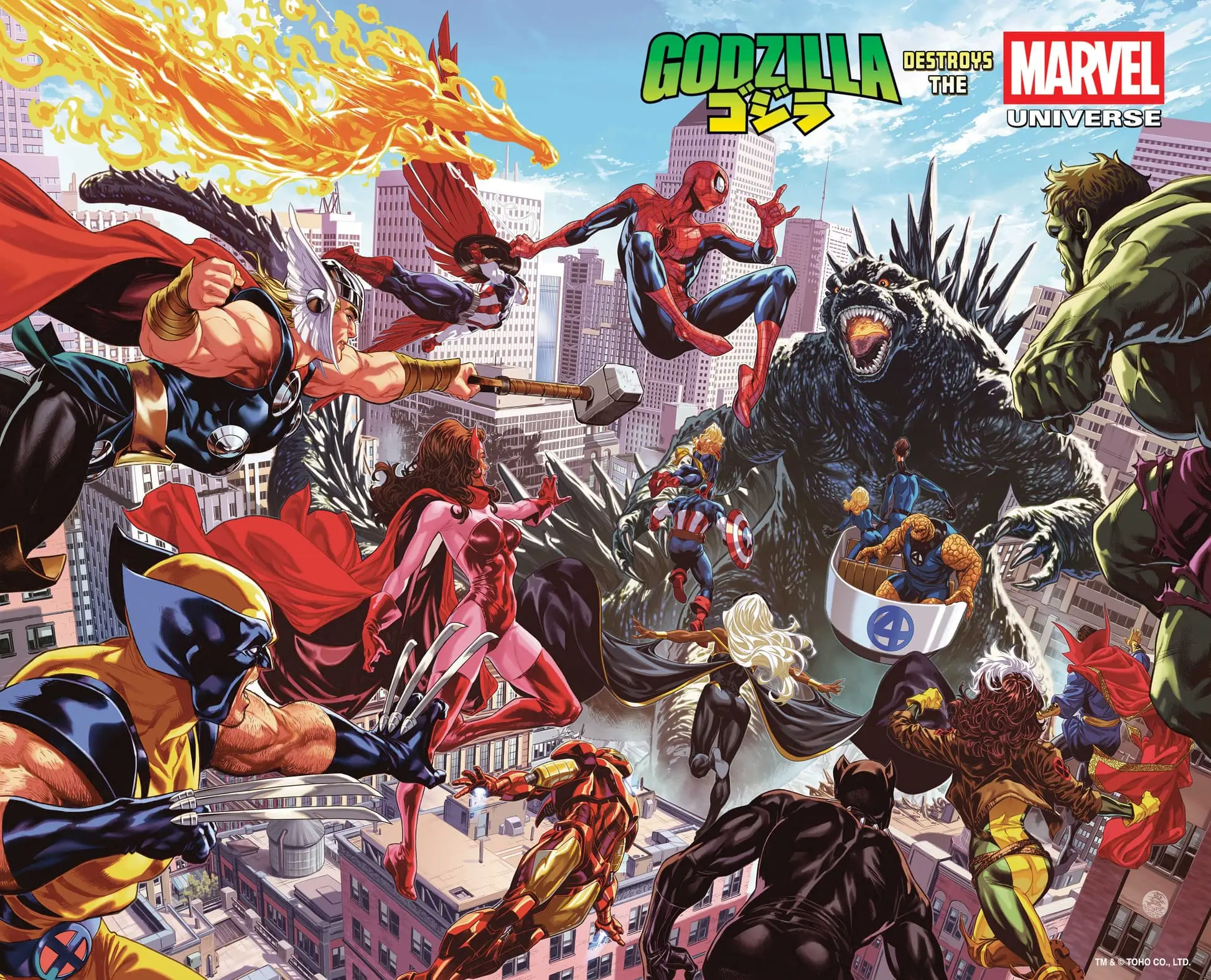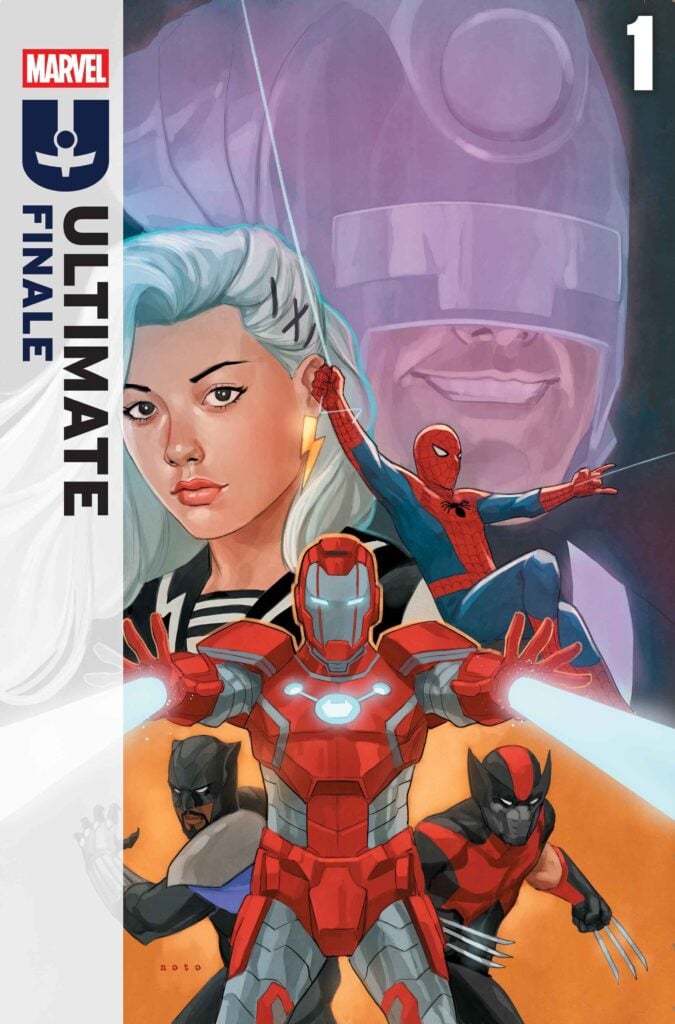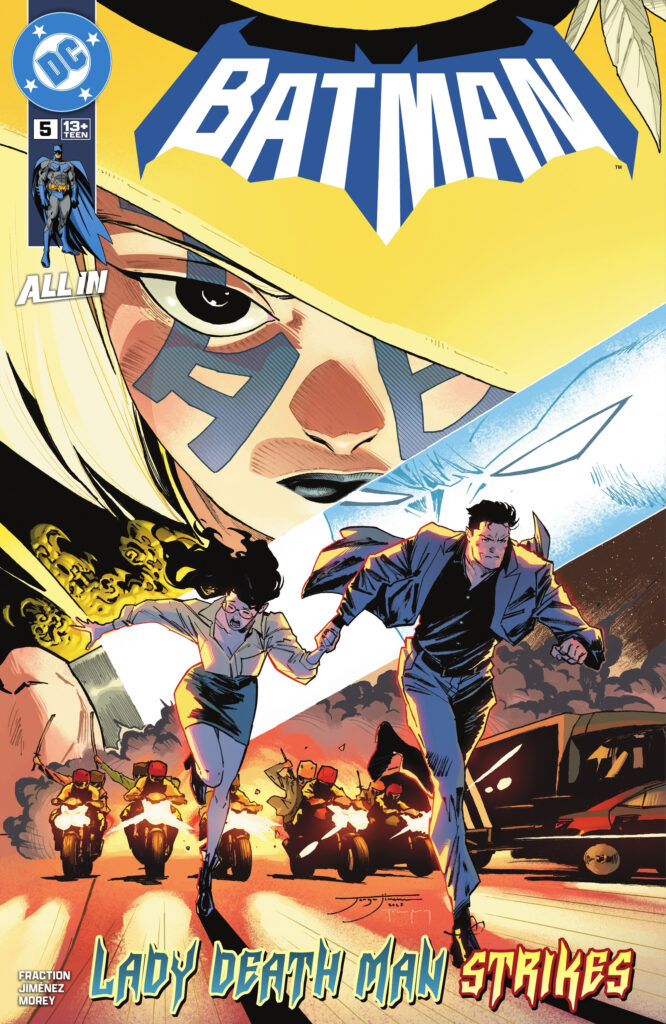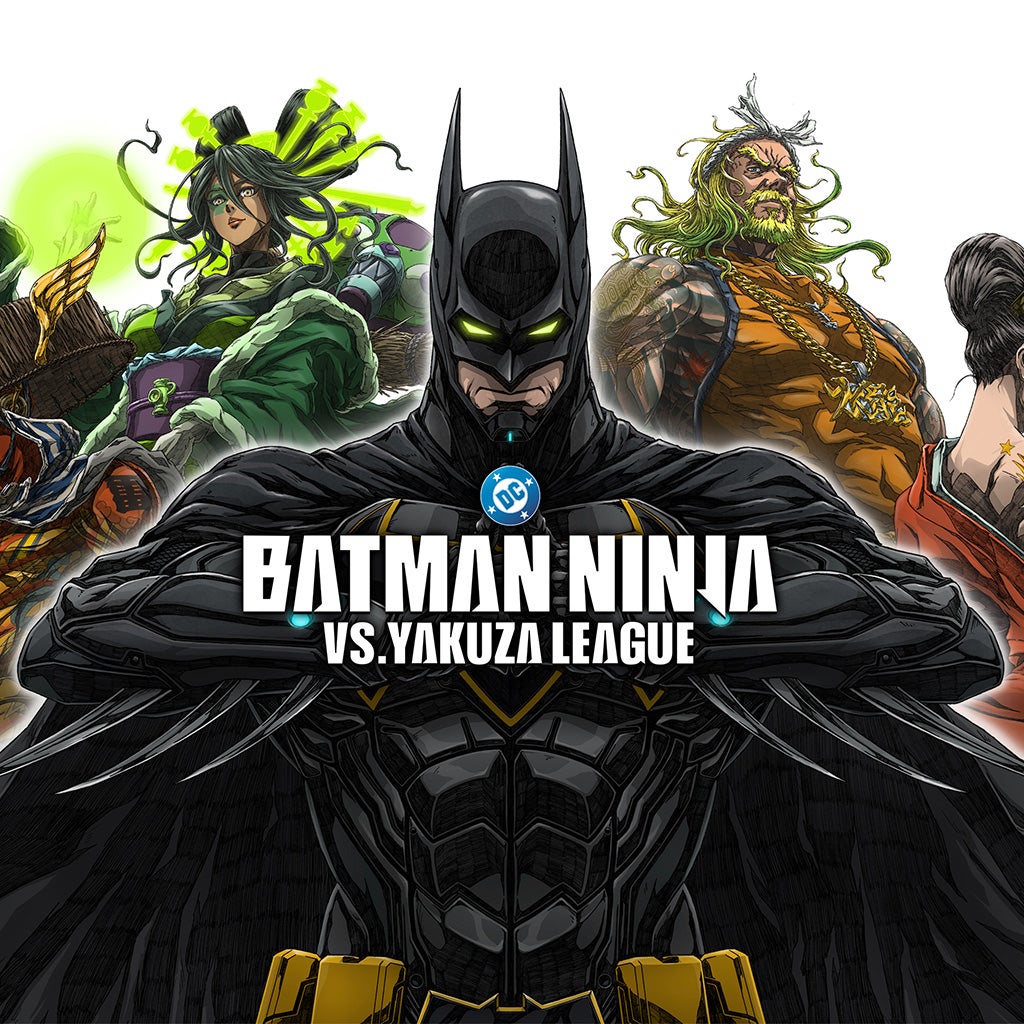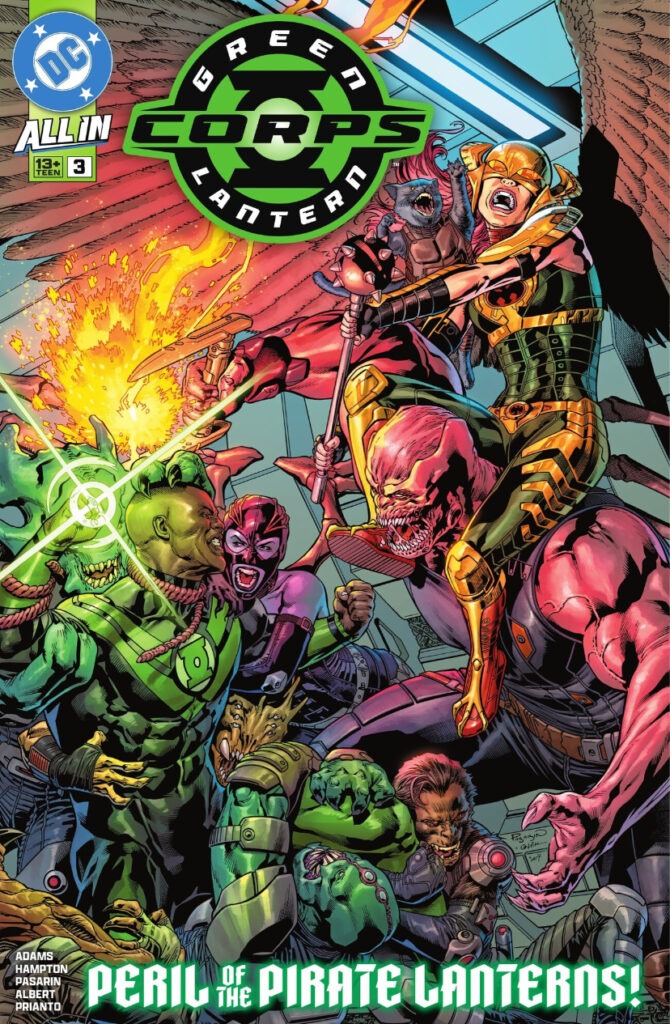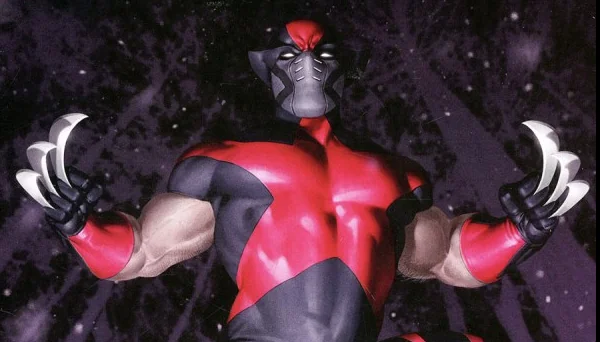Has the Freshwater Killer finally been apprehended? Chris Conton and Montos delve into the chilling depths of the human psyche in Green Arrow #20, probing the question: “What drives a killer?” Let’s dive in!
Inside Star City Medical Center, a worried mother and her son, Kenny, face a grim reality. The doctor’s words echo: Kenny’s benzene levels are “off the charts,” pointing to a toxic source, likely a nearby factory. Then, a stark contrast: the “Fresh Water Killer,” now in custody, is revealed to be a mild-mannered school teacher, not a hardened criminal. Her secret? A terminal diagnosis of acute myeloid leukemia. The room is filled with horror as she collapses, her final cry raw, “It hurts!” Her life ends in a devastating display. Ever the strategist, Green Arrow maneuvers to obtain the dossier he needs to continue his investigation. Later, Oliver finds a moment of quiet with Black Canary. They grapple with the weight of recent events, the teacher’s death hanging heavy in the air. Black Canary offers comfort, reminding him he couldn’t have prevented it. Driven by guilt and frustration, Oliver heads to the rooftop, his arrows a physical manifestation of his inner turmoil. Yet, a shadow lingers—is the “Fresh Water Killer” truly gone?
Credits: DC Comics
Chris Condon continues to anchor Green Arrow firmly in our present reality, posing a compelling question: at what point does accumulated loss and trauma push someone to radicalization? The opening scene, where a mother, son, and doctor grapple with a mysterious seizure, hinting at corporate negligence or malice, is a powerful and unsettling moment. Condon taps into a very real fear—the feeling of being powerless against vast, uncaring entities that seem to inflict suffering with impunity. This sense of vulnerability permeates the issue, especially in the dialogue between Oliver and Dinah. They discuss the devastating consequences of corporate actions: lost homes, broken families, and debilitating illnesses, all to protect a company’s reputation. It’s a painfully relevant commentary, and Green Arrow’s everyman perspective makes him the perfect vehicle for these poignant stories.
The dynamic between Green Arrow and the detectives remains a highlight. Their complex relationship, a mix of grudging respect, exasperation, and even a hint of camaraderie, is consistently entertaining. Green Arrow’s blend of charisma and cunning, particularly when he secures that dossier, is a joy to watch.
Montos’s artwork continues to impress. His character renderings are incredibly lifelike, and the emotional depth he conveys is remarkable. The scene depicting the killer’s agonizing death is particularly striking, capturing the raw intensity of pain with visceral detail. My only minor critique is that the issue felt a bit brief. I found myself wanting more as the story concluded relatively quickly.
Credits: DC Comics
Colorist Adriano Lucus sets a relentlessly dark tone, with stark blacks dominating every scene, mirroring the story’s bleakness. Yet, vibrant greens pierce through, a clear nod to the titular hero. Letterer Hassan Otmanes-Elhao’s clear panel layouts and impactful sound effects, from Oliver’s “Slrrrp!” of chili to Black Canary’s piercing “Skkreeeeeee,” perfectly complement the visuals.
Green Arrow #20 presents a harrowing look at the “Fresh Water Killer,” revealing a tragic figure driven to desperate acts by terminal illness, though questions still linger about the case’s closure. The issue delves into themes of corporate negligence and the human cost of systemic failures, amplified by powerful artwork that captures the story’s emotional weight and bleak atmosphere. Despite its quick resolution, the story’s grounded characters and themes offer an increasingly relevant commentary.
‘Green Arrow’ #20 Review: Unmasking the Freshwater Killer
Green Arrow #20 presents a harrowing look at the “Fresh Water Killer,” revealing a tragic figure driven to desperate acts by terminal illness, though questions still linger about the case’s closure. The issue delves into themes of corporate negligence and the human cost of systemic failures, amplified by powerful artwork that captures the story’s emotional weight and bleak atmosphere. Despite its quick resolution, the story’s grounded characters and themes offer an increasingly relevant commentary.


